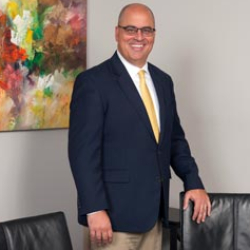The first question that always comes up is, what is Medicaid in reference to elders? Medicaid is a Federal and State program that covers long-term care costs for those eligible. There are different types of Medicaid programs. Today I’m going to focus on Nursing Home Medicaid vs Medicaid Waiver. I’ll narrow that focus more by talking about how each program works, the myths surrounding spend down, and how to plan. Now, I don’t want you to confuse this topic with Medicare, which is completely different and does not cover the cost of long-term care. I always tell clients the easiest way to remember what Medicaid or Medicare pay is that Medicaid pays for the nursing home and the care that happens inside of the nursing home’s walls. Medicare pays for anything outside of the nursing home, like a trip to the hospital or doctor’s office. However, there is also Medicaid Waiver, which is Medicaid that covers a portion of in-home care that entails having a nurse or caregiver come to your home to care for you to avoid going into a skilled or long-term care facility. But again, Medicaid Waiver covers the care in your home. Medicare covers the care receive outside of your like in a hospital, doctor’s visit, rehab, or etc.
When we examine Medicaid for a skilled or long-term care facility verse Medicaid Waiver, in either instance we are looking to get the cost of care covered by the government. Nursing home Medicaid is a specific Medicaid program utilized to pay for skilled nursing home care. It will NOT cover the cost of in-home care, assisted living, memory care or etc. It is strictly skilled nursing home care. Medicaid Waiver is a specific Medicaid program used to pay for in-home care or part of assisted living and/or memory care.
Nursing home Medicaid will cover the entire cost of a nursing home, which can average between $7,500 and $10,500 a month in West Michigan. Due to the current elder population and people living longer, there are waitlist for Medicaid beds at almost every nursing home. Medicaid Waiver will partially cover the cost of assisted living and / or in home care. Medicaid Waiver helps pay for the cost of care. It does not pay for room and board at an assisted living or memory care facility. Typically, Medicaid Waiver will state based on the care needed, the assets, and income of how many hours of care they will pay for / provide. A lot of loved ones ask why not do Medicaid Waiver over nursing home Medicaid if their loved one can stay home longer? This is tough question to answer because first of all, taking care of loved one is draining on the caretaker, especially if it is a spouse. Studies have shown that the caretaker spouse typically is so busy caring for their spouse that they stop taking care of themselves. I’m not saying caring for your spouse is impossible and it shouldn’t happen, but it does need to be realistic. Another consideration when deciding whether to do Medicaid Waiver or nursing home Medicaid is the strict asset and income limits that they each have. Medicaid Waiver has a strict asset limit of $2,000 for the individual on Medicaid. Unless you have done some preplanning with a trust that I’ll mention later, you literally have to spend down to nothing. Now, my goal is not to make this all sound bleak. There are options and planning tools that you can utilize to qualify for Medicaid that doesn’t require spending down to nothing. If you work with an Elder law attorney grand rapids mi with specializes in this area of law they can guide you and your loved one through the Medicaid whirlwind.
There are many tools that you can use to assist with applying and qualifying for Medicaid. One of those tools is an Irrevocable Trust or its sometimes referred to as an Asset Protection Trust. This trust allows you to shield assets from Medicaid. The caveat is that either the assets must have been placed in the trust 60 months (5 years) prior for the look back or you can do emergency planning where day one you can put half your assets into it for protection. This gets very complicated, so it is best to work with a Medicaid asset protection attorney who not only does this regularly but understands the Medicaid rules.
Please call the Law Offices of Sean Patrick Cox, P.L.L.C. in Grand Rapids, Michigan at 616-942-6404, to set up a free consultation.

Sean Patrick Cox is a lawyer. Sean practices in two main areas, family law, and elder law. he has represented clients in complex divorce cases since 1994.





